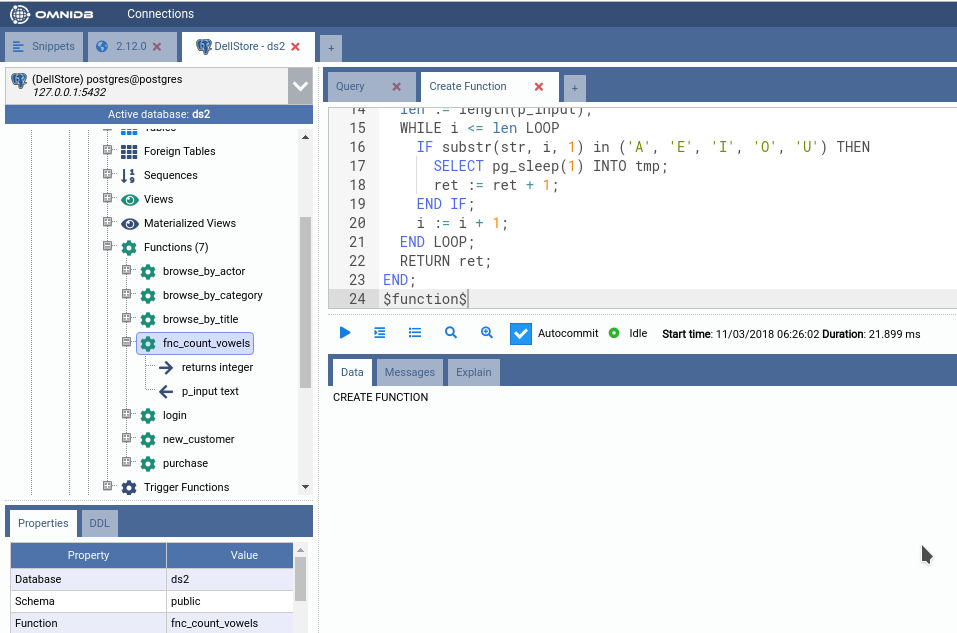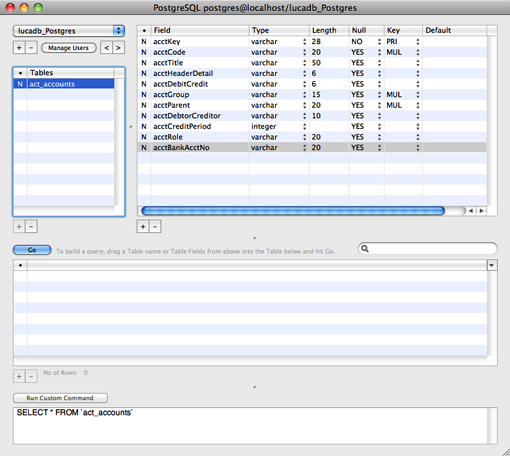


Right-click the table folder to create a table.Ĭhoose the database host, enter the username and password. Start the application and connect to the Postgres database. DbSchema has a free Community Edition, which can be downloaded here. This will display a list of all databases in your PostgreSQL instance.Ĭongratulations! You’ve just created a new database using psql.Ĭreate Tables and Visually Manage PostgreSQL using DbSchemaĭbSchema is a PostgreSQL client and visual designer. Verify that the database was created by running: postgres=# \l To create a new database, run the following command, replacing your_database_name with your desired database name: postgres=# CREATE DATABASE your_database_name When prompted, enter your PostgreSQL password. To create a new database using psql, follow these steps:Ĭonnect to your PostgreSQL server using the following command, replacing username with your PostgreSQL username: postgres=# psql -U username Psql (PostgreSQL) 14.1 Creating a Database using psql You should see the version number of your installed PostgreSQL instance.
POSTGRES CREATE DATABASE WITH OWNER INSTALL
Administrative rights to install software on your computerįirst, you’ll need to install PostgreSQL and its command-line interface, psql.A computer with a compatible operating system (Windows, macOS, or Linux).Prerequisitesīefore we begin, ensure that you have the following:
POSTGRES CREATE DATABASE WITH OWNER HOW TO
In this article, we’ll explore both tools and show you how to create a database using psql, a Postgres command-line client, and DbSchema, a visual database designer. The article is divided into the following sections: Table of Contents By the end, you’ll have a better understanding of how to manage your databases using these tools. This article will guide you through the process of creating a database using psql and DbSchema. How to Create a Database using psql and DbSchema


 0 kommentar(er)
0 kommentar(er)
